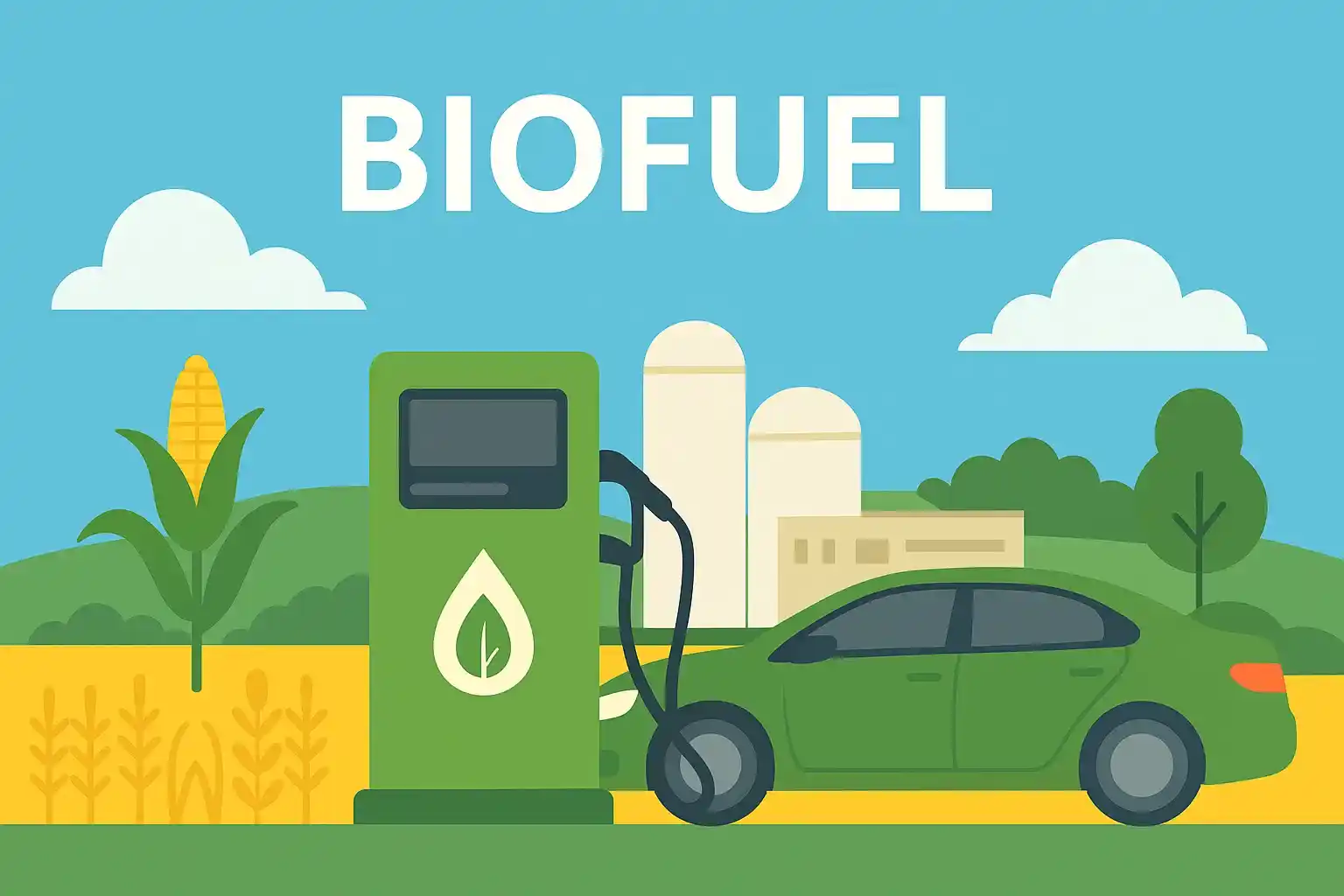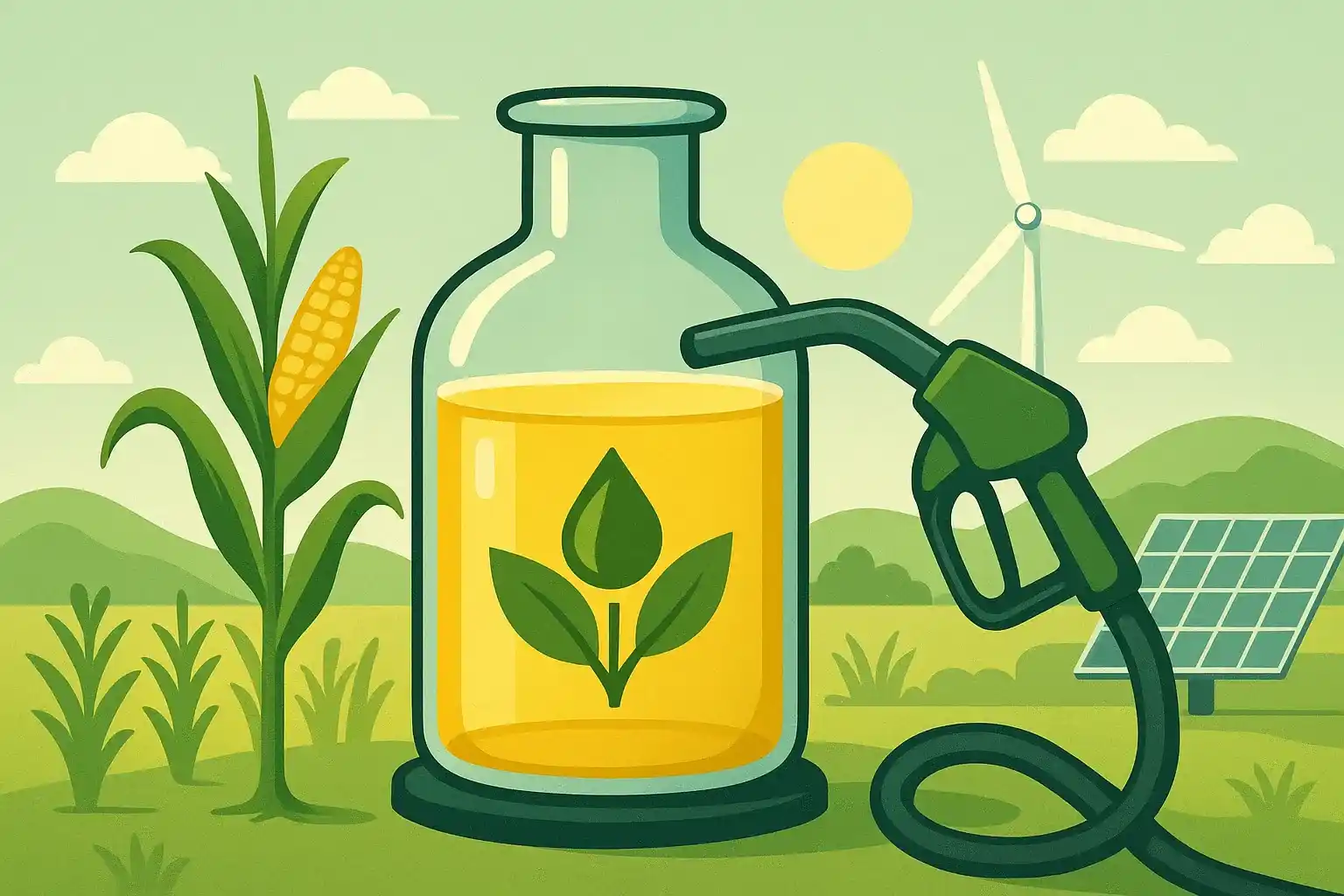- 021-91034194
- Info@pishco.ir
- Tehran, Sa'adat Abad
Home » What is biofuel? Introducing the green fuel of the future
With growing concerns about climate change, dwindling fossil fuel resources, and air pollution, the world is looking for sustainable energy solutions. One important and growing option in this regard is biofuels. Biofuels are produced from renewable biological resources and can replace or supplement fossil fuels. This article examines the history, types, benefits, challenges, and future of biofuels.
Biofuel is a type of fuel that is produced from organic materials such as plants, algae, or biological waste. Unlike fossil fuels, which take millions of years to form, biofuel sources are renewable and can be produced in short periods of time.
Suggested article: What is biofuel and what are its uses?

The idea of using biofuels for fuel is not new. In the early 20th century, Henry Ford designed the Model T engine to run on ethanol derived from corn. However, biofuels did not gain much attention until recent decades due to the cheapness of oil. The oil crisis of the 1970s and environmental concerns brought renewed attention to the fuel.
Recommended article: Clean fuel and energy
Bioethanol is a type of alcohol produced by fermenting sugars or starches found in plants such as corn, sugarcane, or wheat. This fuel can be used alone or as an additive to gasoline, reducing emissions.
Biodiesel is produced from vegetable oils or animal fats and is a suitable alternative to diesel. This biofuel can be used in diesel engines without the need for major modifications.
Biogas is the result of the anaerobic decomposition of organic matter such as agricultural waste, livestock manure, and sewage. The gas consists mainly of methane and carbon dioxide and can be used to generate electricity or heat.
This type of biofuel is used as aviation fuel and is produced from vegetable oils or organic waste. Biojet fuel can significantly reduce greenhouse gas emissions from the aviation industry.
Reducing dependence on fossil fuels
The use of biofuels can make countries less dependent on oil imports and increase energy security.
Renewable
Biofuel sources such as plants and algae grow in a short time and can be harvested repeatedly.
Reducing greenhouse gas emissions Biofuels typically release less CO₂ than fossil fuels because plants absorb the same gas from the atmosphere during their growth.
Creating jobs in agriculture and energy
Biofuel production requires farms, processing plants, and a distribution network, which creates numerous job opportunities.

Despite the benefits, biofuels are not without challenges:
Competition with food production
Cultivating crops for fuel may divert agricultural land from food production and increase food prices.
High water and energy consumption
The production process of some biofuels requires a lot of water and energy, which can reduce their environmental impact.
Indirect greenhouse gas emissions
Land use change to grow biofuel feedstocks may release carbon stored in soil and plants.
Cost of production
In many cases, biofuels are still more expensive than fossil fuels and require government subsidies or incentives.
Invest in research and development
Develop more efficient and cheaper technologies for producing biofuels from non-food competing sources.
Government policy and incentives
Establishing laws to reduce carbon emissions and providing subsidies to biofuel producers.
Education and awareness
Informing the public and industry about the benefits and applications of biofuels to increase public acceptance.
Sustainable supply chain
Creating infrastructure for optimal collection, processing, and distribution of biofuels.
As a renewable energy source, biofuels offer a significant opportunity to address climate change, reduce oil dependence, and achieve sustainable development. However, to fully exploit their potential, challenges such as production costs, competition with food, and indirect environmental impacts must be managed. The future of biofuels depends on technological advances, smart policymaking, and global cooperation. If these conditions are met, biofuels can serve as a mainstay of clean energy in the 21st century.
Suggested article: What is green fuel and how is it produced?
Biofuels typically have lower greenhouse gas emissions than fossil fuels. However, their production can have negative impacts if it leads to deforestation or excessive water consumption.
Depending on the type, biofuel can be produced through fermentation of sugars, transesterification of oils, anaerobic digestion, or advanced chemical and biological processes.
Currently, biofuels are mostly used as a supplement to fossil fuels, but as technology advances and production capacity increases, they could capture a larger share of the energy market.
Many vehicles can run on a blend of petrol and bioethanol or diesel and biodiesel without major modifications. However, technical modifications may be required to run on 100% biofuel.
لطفا فرم زیر را به دقت پر کنید تا مشاورین ما در اسرع وقت با شما تماس حاصل فرمایند.
Please fill out the form below carefully so that our consultants will contact you as soon as possible.